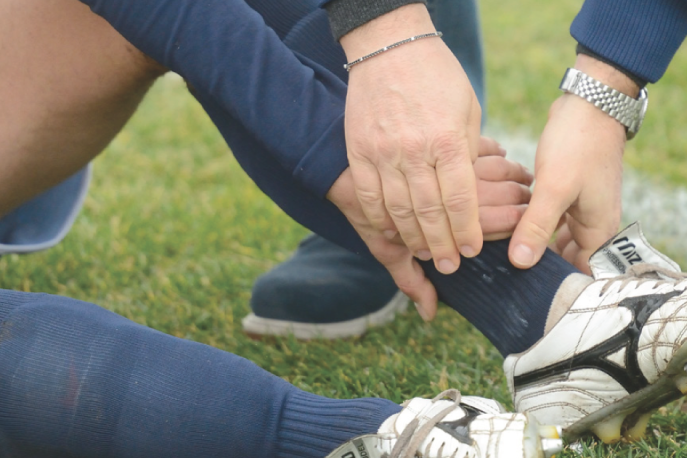Discussions on how to prevent sexual violence in sport often focus on coaches as team leaders or high-profile athletes as role models. But this focus overlooks the contributions of other critical leaders in the sports pipeline, such as athletic trainers, and the role they play in establishing safe and healthy environments.
In RALIANCE’s new report, “Athletic Trainers as Leaders in Sexual Violence Prevention,” we took a closer look at the role of athletic trainers, who often build trusted relationships with student athletes when they are particularly vulnerable, such as when their injuries keep them on the sidelines instead of the field.
We invite you to check out the recently released full report – but here is a preview of why athletic trainers are in a strong position to prevent sexual harassment, misconduct, and abuse:
1. Athletic trainers promote physical and mental health. Because student athletes are still developing, athletic trainers are responsible for overseeing their successful growth. This involves educating student athletes about various aspects of their health, including sexual health. This responsibility places athletic trainers in a natural position to discuss healthy and unhealthy behaviors with their student athletes.
2. Athletic trainers practice and demonstrate consent every day. As athletic trainers treat acute and chronic injuries, they explain the procedures they use and ask permission before touching and treating a student athlete. In this way, they are modeling consent and teaching student athletes the importance of establishing and respecting personal boundaries.
3. Athletic training rooms are central locations. These spaces are the crossroads of the sports world, where student athletes, coaches, sports medicine professionals, and even members of other teams come together with the common goal of improving health. As a result, the athletic training room is an ideal location for shaping norms about healthy relationships, gender, sexuality, and bystander intervention.
In the full report, you’ll find additional insights, such as the types of information athletic trainers need to prevent sexual violence and the potential barriers they face to being leaders in this effort. It’s an excellent reminder that all members of a given community – including those who usually work behind the scenes – have the ability to create change if given the resources. Read the report here!
RALIANCE provides consulting, assessment, and employee development services to help build more equitable workplace cultures and create environments free from sexual harassment, misconduct and abuse. We stand ready to support your organization’s goals – contact us today at info@raliance.org to get started.

